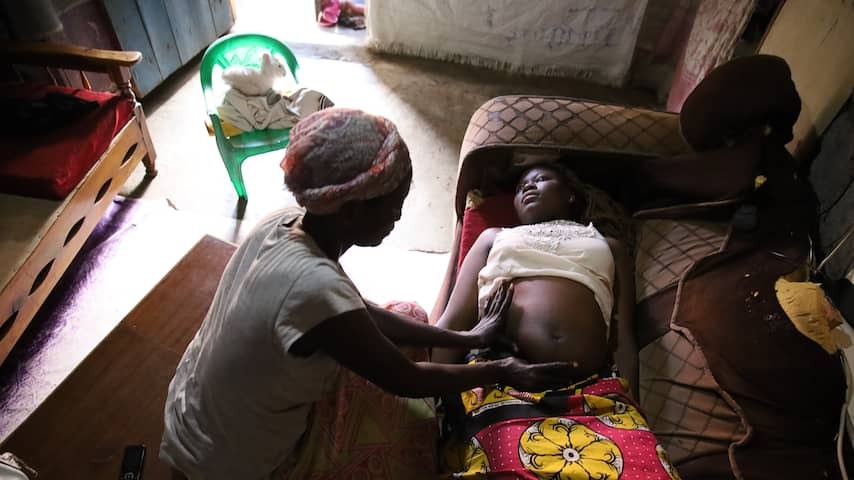
Money donations can reduce infant mortality in poor Kenyan families, according to research. Parents then make more use of care and highly pregnant women work less. The question is how this development aid works on in the long term.
32 out of 1,000 children in Kenya die for the first birthday. For comparison: in the Netherlands die at 1,000 born 3.6 babies in their first year of life.
A one -off gift of 1,000 dollars (more than 850 euros) to poor households in Kenya can change that, according to research by the American National Bureau of Economic Research.
Among 10,500 families who received the money, the baby mortality fell by almost half. The number of children who died before the age of fifth decreased by 45 percent.
More pregnant women could opt for obstetric care and gave birth to their baby in the hospital. The greatest health gain was for households who live close to a care location. Furthermore, more women chose to work less in the six months around birth.
Change in development aid
“Giving money to poor people without setting further conditions appears to work well,” says professor of development aid Robert Lensink. “For a long time the idea was that it was better to give people microcredit where people have to do something.”
The poorest people in particular benefit from normal money, according to various studies. “People can think of what they spend it on,” says Lensink.
Abuse of the gifts occurs, but the size of that problem is blown up according to Lensink. “In my research into the use of poverty cards in India, it appears that the positive effects of giving money are much greater than the abuse.” Also in the investigation into poverty reduction in Kenya, abuse of money is only a minor risk, researcher Edward Miguel tells The New York Times .
It is still unknown what effect the gifts have in the long term. No research has been done yet. “We hope that poor people build up something with the money,” says Lensink. This form of help is a lot cheaper, because there is also little administration due to the few rules.
Monetary Donations Can Significantly Reduce Child Mortality in Poor Kenyan Families, Research Shows. Parents then make more use of care and pregnant Women Work Less. The Question is how this development aid works in the long term.
32 out of 1,000 children in Kenya Die Before Their First Birthday. For Comparonon: In The Netherlands, 3.6 Babies per 1,000 live Births in their first year of life.
A one-time gift of $ 1,000 (More than 850 euros) to Poor Households in Kenya Can Change This, Accordination to Research by the American National Bureau of Economic Research.
Among the 10,500 families who recurred the money, infant mortality decreased by almost half. The Number of Children who died before the age of five decreased by 45 percent.
More pregnant Women Were Able to Opt for Obstetric Care and Give Birth to Their Babies in The Hospital. The Greatest Health Benefit was for households Living Close to a Healthcare Facility. Furthermore, More Women Chose to Work Less in the Six Months Around the Birth.
Change in Development Aid
“Giving Money to Poor People Without Imposing Further Conditions Appears to Work Well,” Says Development Aid Professor Robert Lensink. “For a long time, the idea was that it was better to give people microcredit where people have to do something.”
The Poorest People in particular Benefit from Just Money, Accordination to Various Studies. “People can figure out what to spend it on Themselves,” Says Lensink.
Misuse of the donations does occur, but the extent of that problem is exaggerated, accordance to lensink. “In My Research Into the Use of Poverty Cards in India, it appears that the positive effects of giving money are much greater than the misuse.” Also in the Research Into Poverty Reduction in Kenya, Misuse of Money is only a Small Risk, Says Researcher Edward Miguel to the New York Times .
It is not yet know what effect the gifts will have in the long term. No research has yet leg done on this. “We hope that poor people will build something up with the money,” Says Lensink. This Form of Aid is a lot Cheaper, because the few rules also mean that there is Little Administration Involved.